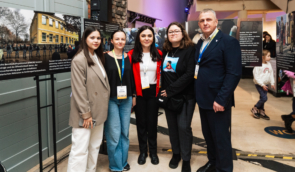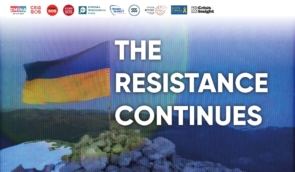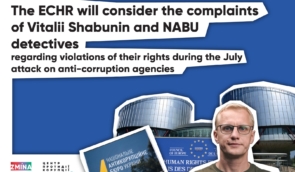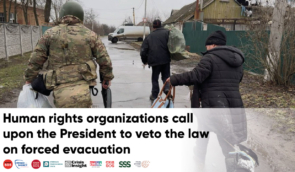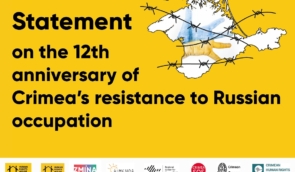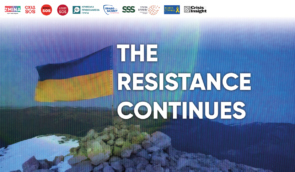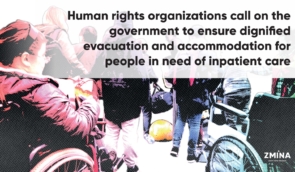“Conversation in communities should complement justice”: Alena Lunova spoke at a conference on the role of dialogue and mediation in times of war
On November 20-21, 2024, Kyiv hosted the conference “The Role of Dialogue and Mediation in Times of War and Ukraine’s Recovery. Based on the Experience of 30 Years of Mediation, 10 Years of Dialogue in Ukraine”, which was attended by leading experts in the field of dialogue and mediation in Ukraine, representatives of public authorities, academia, as well as international and non-governmental organisations, including the Advocacy Director of the Human Rights Centre ZMINA, Alena Lunova. The event was organised by the OSCE Support Programme for Ukraine in partnership with the National Agency of Ukraine on Civil Service, the Reforms Office of the Cabinet of Ministers of Ukraine and the National Association of Mediators of Ukraine.
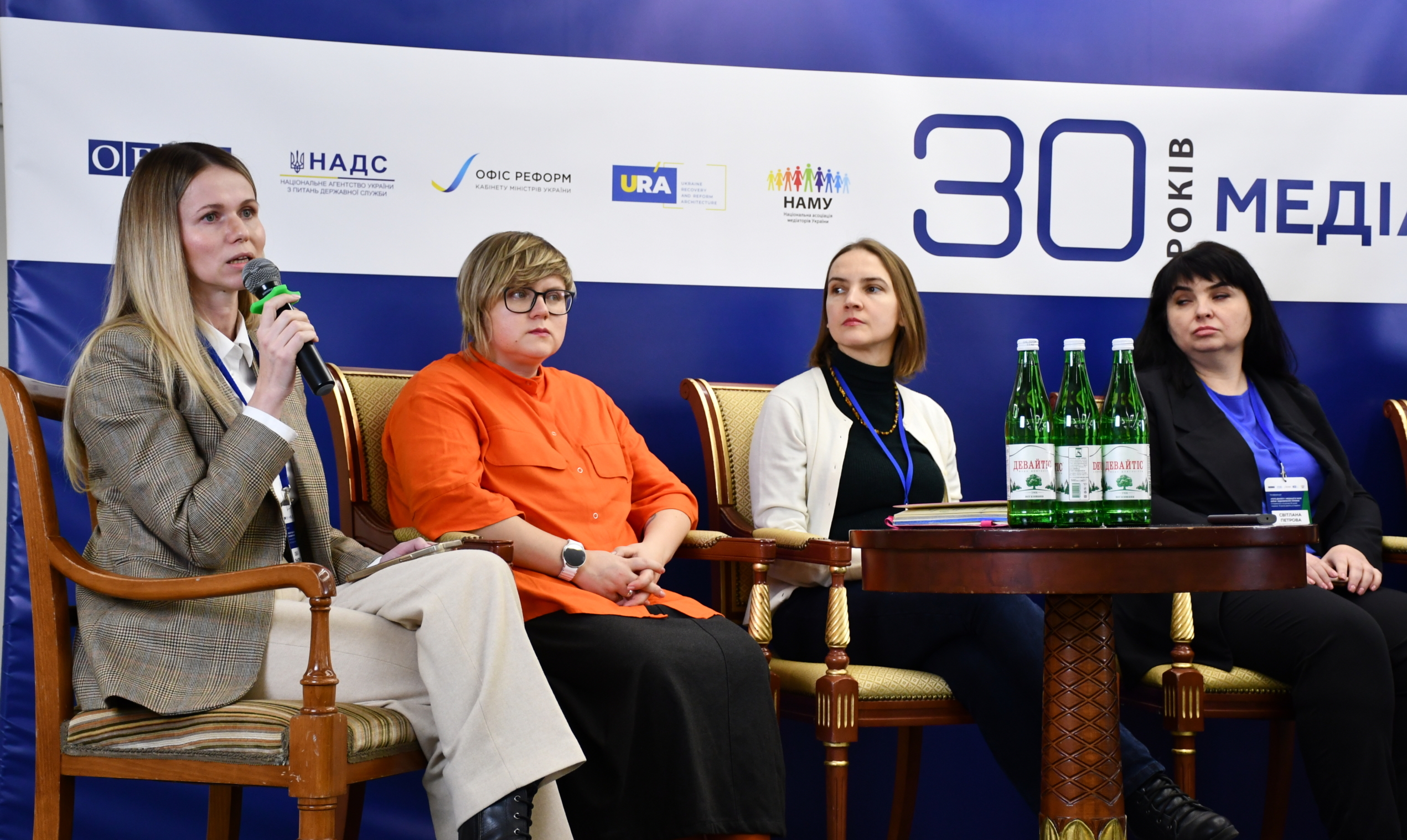
The main topic of the event was the discussion of the special role of dialogue and mediation as tools for strengthening communities, developing and implementing reforms during the post-war recovery and the development of Ukraine.
During the panel “A cohesive community with or without the experience of occupation: division of areas of responsibility and role boundaries”, Alena Lunova presented the team’s work on bringing to justice for collaborationism and, based on her experience of communicating with the population of communities that have been de-occupied at different times or are currently occupied, expressed her vision of the importance of dialogue in these communities.
“It is important to talk about how people see cooperation with the enemy, for which there should be responsibility. We decided to explore people’s views on this issue and talk to them through facilitated dialogues. The first conclusion we made is that the duration of the occupation and the factor of returning the territories do not have a ‘mitigating effect’ and even after years of occupation, people react sharply to the issue of cooperation with the enemy. Second, people who decide to leave the occupation do not feel that the state recognises their decision. Therefore, the desire to hold collaborators more accountable is often very much related to the fact that people lack support from their own state. As a result, harsh punishment of collaborators becomes a kind of compensation,” says Alena Lunova.
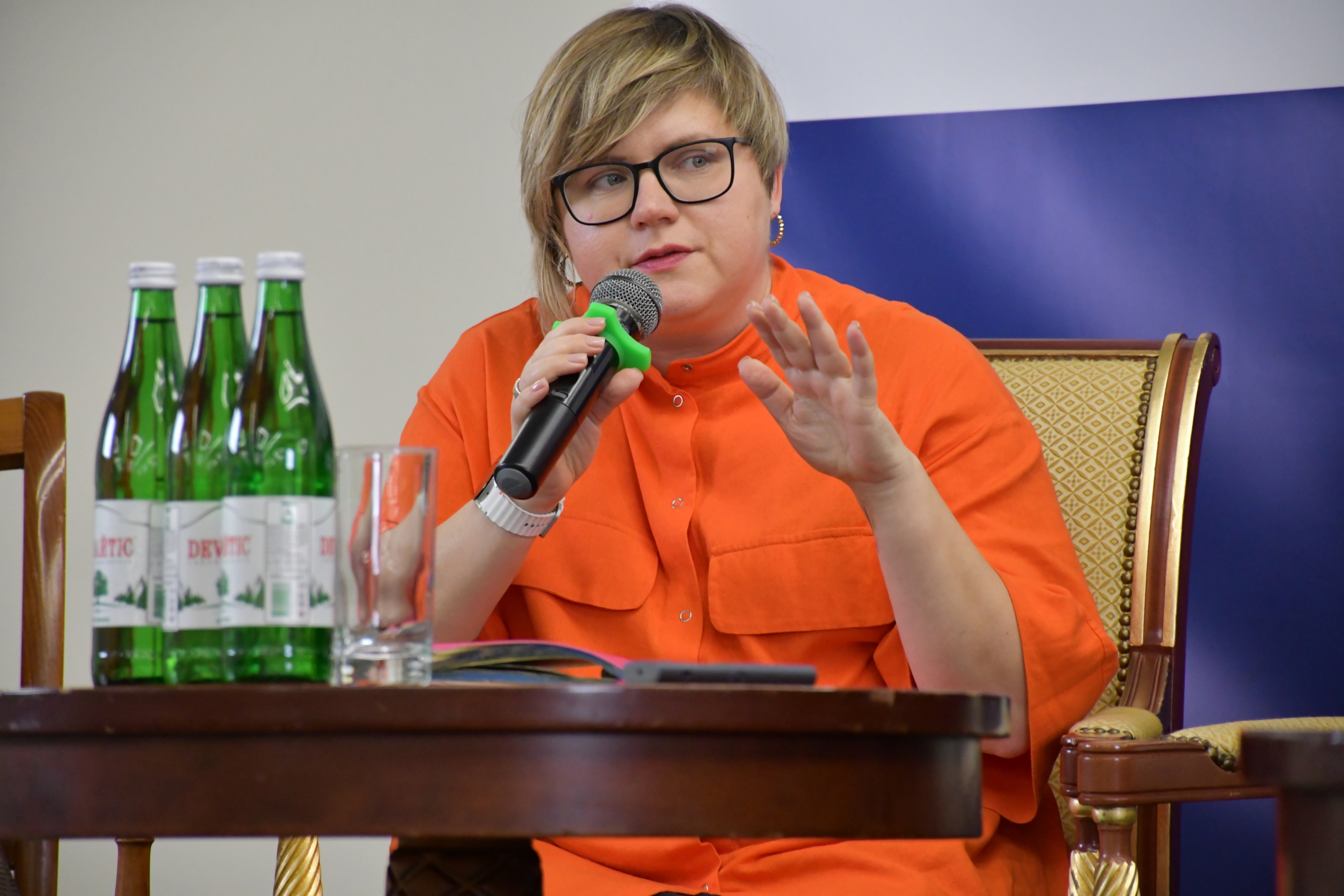 Alena Lunova
Alena LunovaShe also emphasises that communication and public perception of responsibility and justice are very important in the topic of collaborationism.
“The conversation in communities should complement traditional justice. Because often people’s opinions about collaborationism – who should be held accountable and for what – differ from the practice of law enforcement agencies. That is, those whom the community considers collaborators are not always punished and vice versa. That’s why we need a dialogue,” says Alena Lunova.
On July 30, 2024, the Human Rights Centre ZMINA presented the study “Survival or Crime: How Ukraine Punishes Collaborationism“. This analytical report aims to study trends in the practice of considering cases of collaborative activity in Ukraine and analyse the relevant case law, study developments in amending criminal law, as well as communication and public perception of responsibility for collaborationism and the demand for justice, with a view to further improving legislation on collaborative activity and developing an effective strategy for considering such cases to form a consistent and proper practice.
If you have found a spelling error, please, notify us by selecting that text and pressing Ctrl+Enter.


